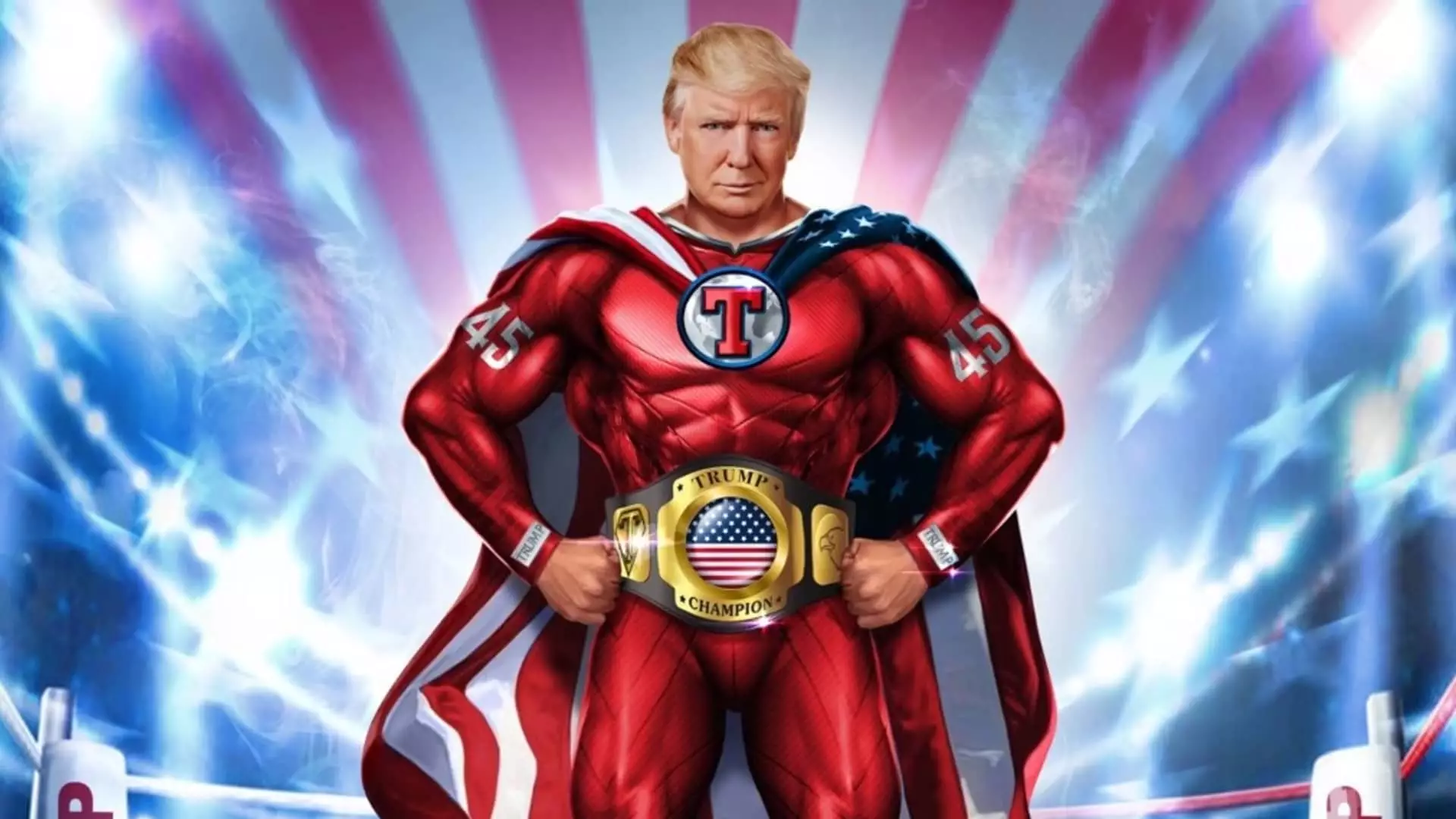The world of cryptocurrency often invites skepticism and caution, and since the inception of Bitcoin in 2009, countless projects have been introduced to varying degrees of success. Amid this tumultuous landscape, former President Donald Trump has sought to carve out his own niche within the crypto realm with the launch of World Liberty Financial (WLF). As the presidential election looms just weeks away, Trump’s new venture is geared toward reshaping the financial technology landscape, but is it a groundbreaking initiative or just another speculative endeavor?
World Liberty Financial positions itself as a crypto bank, appealing to those looking to either invest, borrow, or lend within the digital currency domain. However, prospective investors are met with ambiguity surrounding the project’s foundations—there is no comprehensive white paper available or formal business plan to scrutinize. The scant information that has emerged reveals that holding WLF tokens would presumably grant users some form of voting rights; yet, little else is definitively known about the project’s direction or operational model.
Recent reports indicate that the WLF aims to raise $300 million, targeting a valuation of $1.5 billion during its initial offering. However, the path to investment remains obscured, with only a vague roadmap presented to potential backers. Such uncertainty inevitably gives rise to questions about the project’s viability and transparency: will this venture ultimately serve the interests of its token holders, or merely act as a vehicle for its founders, most notably Trump and his close affiliates?
Donald Trump’s financial ventures have continuously drawn scrutiny, and the rise and fall of the Trump Media and Technology Group, which trades under the ticker symbol DJT, exemplifies the volatility inherent in his business dealings. The stock, after peaking at nearly $80 in March, subsequently plummeted to around $12 before making a modest recovery. Recent gains—up approximately 150% in just a few weeks—coupled with comparatively minuscule revenue of less than $1 million per quarter, suggest that fluctuations in sentiment rather than underlying performance may remain the primary force at play.
Adding to the intrigue is that Trump reportedly owns around 57% of DJT’s outstanding shares, but the opacity surrounding his stake in WLF and how much control he will exert raises eyebrows. Co-founder Zachary Folkman has disclosed that 20% of the tokens will be allocated to the founding team, including Trump’s family, which poses yet another concern about the alignment of interests between the founders and investors.
Regulatory compliance will prove to be a significant obstacle for World Liberty Financial. Its token offering is classified under Regulation D, allowing the company to bypass the exhaustive registration process with the SEC. This avenue introduces considerable risk for smaller investors, as only accredited individuals—defined by a net worth threshold of over $1 million—may participate. This provision not only limits the pool of potential investors but also raises ethical questions regarding who stands to benefit most from this business proposal.
Moreover, the delicate issue of governance also looms large. The fine print on the WLF website suggests that Trump and his associated entities could receive lucrative fees and tokens tied to their roles in the project. Such arrangements further muddy the waters around the integrity of governance token structures and investor rights; Folkman’s assertion that token ownership “isn’t equity” raises significant concerns—without economic rights tied to the tokens, what real power do holders have?
The crypto community’s response to the World Liberty Financial has been mixed. A recent virtual discussion hosted by WLF saw approximately 12,000 attendees, but concerns remain regarding the transparency of the project and Trump’s involvement. Early indications suggest community skepticism, particularly regarding the relationships and backgrounds of the founders, which many fear might tarnish WLF’s reputation.
As WLF looks to integrate itself with established DeFi platforms like Aave, the project’s sustainability and credibility hinge upon winning over existing DeFi users and ensuring compliance with community norms. Yet apprehensions about potential risks stemming from its founders’ dubious credentials are palpable, leading to fears that this new venture may be more about opportunism than fostering a serious financial platform.
As the cryptocurrency landscape continues to evolve, ventures spearheaded by prominent figures such as Donald Trump exemplify the allure and risks associated with emerging financial technologies. World Liberty Financial could potentially open new avenues within the crypto banking sector, yet it simultaneously stands as a testament to the fractious nature of intersectional politics and finance. Investors must weigh the promise of innovation against the very real risks of investing in ventures steeped in uncertainty, especially when attached to a polarizing figure like Trump. Ultimately, time will tell whether WLF will flourish or fade, but for prospective investors, caution remains paramount.

